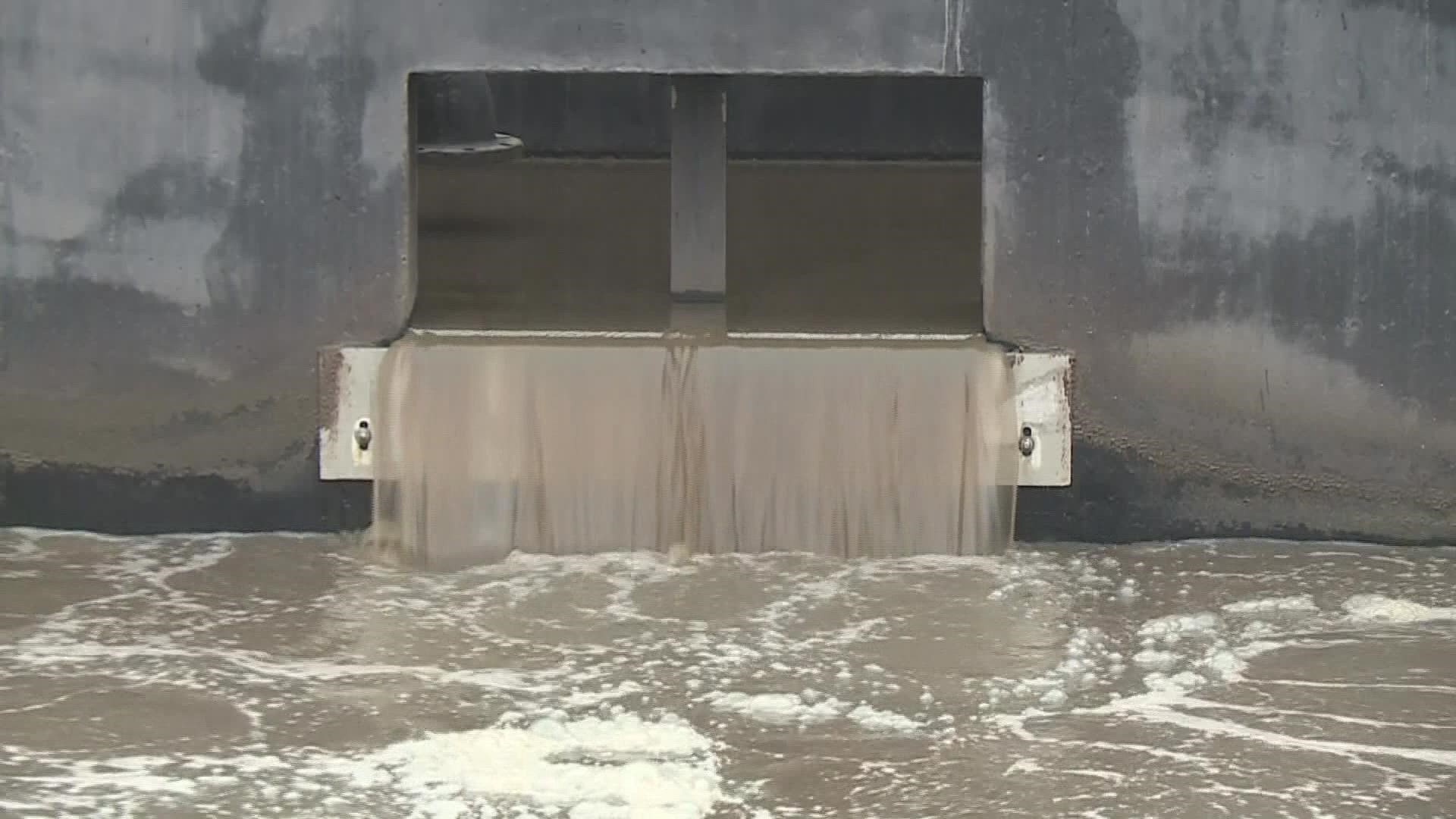ST PAUL, Minn. — Labor unions and environmentalists have joined with cities across the state to ask lawmakers to invest more in clean water projects such as updating wastewater treatment infrastructure and replacing lead water service lines.
In a state capitol press conference Wednesday, the Coalition of Greater Minnesota Cities called on legislative leaders to make clean water a priority at a time when the state's coffers are bursting with a projected $9 billion surplus.
"There is no safe level of lead in drinking water. There is no excuse given the resources available to allow our most basic infrastructure to continue to be a danger to human health," Bradley Peterson of the CGMC told reporters.
"We have this opportunity and now we need the legislature and the governor to provide the political will to answer the call for Minnesotans."
The cost of treating wastewater in Minnesota is rising in part because water pollution standards are becoming more rigorous. The goal is to cut down on nitrates and phosphorous that contribute to algae blooms and threaten aquatic life downstream from the plant.
State assistance programs are the only way to spare residents and businesses from bearing the entire burden through user fees. Smaller cities upgrading treatment plants have passed much of the cost onto homeowners and businesses.
The group is asking the legislature to pass $299 million in bonding for a programs that give cities clean water grants and loans, administered by the Public Facilities Authority. The same bill -- House File 3858 -- would commit the state to spending $40 million per year on an ongoing basis to build up the Point Source Implementation Grant Program.
A separate piece of legislation -- House File 4115 -- would set aside $10 million for grants to help cities pay for mapping all of the lead water service lines, which are the pipes that run from water mains into homes and businesses. The bill would also invest $30 million per year in a grant program to help cities pay for replacing those lead service lines.
"For decades we've known that thousands of Minnesota households have lead pipes delivering drinking water," Paul Austin of Conservation Minnesota, told reporters.
"This is a threat to the health and development of children living in those homes."
The city of Austin in southern Minnesota is one community in dire need of help footing the bill for replacing an aging wastewater treatment plant. It was built in 1920 and has been gradually expanded and modernized during the past century, but it won't be able to remove enough phosphorous from the water to meet updated standards.
"If we don’t receive state funding for our project the potential rate increase will be so high that we are concerned people and businesses won’t want to put down roots in Austin," Austin Mayor Steve King explained.
The city is seeking $27 million in bonding, plus $7 million from the Point Source grant program, which is the highest amount any one project can currently receive from that pool of money. Even it that money comes through, local water users in Austin would still pick up $50 million of the tab through higher monthly fees.
"While our city is certainly willing to pay our fair share, we need a financial partnership with the state to help us finish the job and ensure our waters are clean."
MORE NEWS: The state of Minnesota's salt dilemma
Watch the latest political coverage from the Land of 10,000 Lakes in our YouTube playlist:

